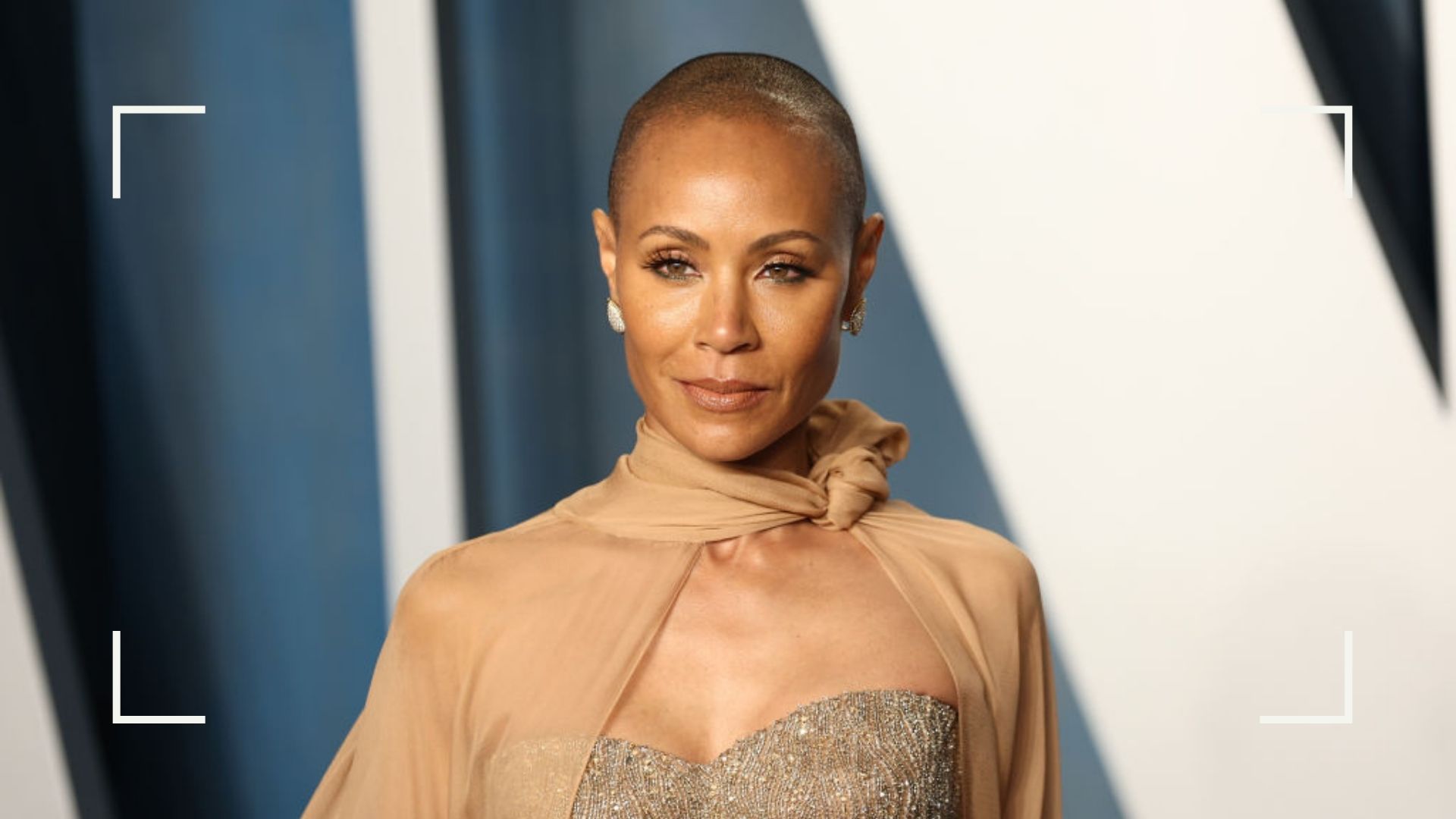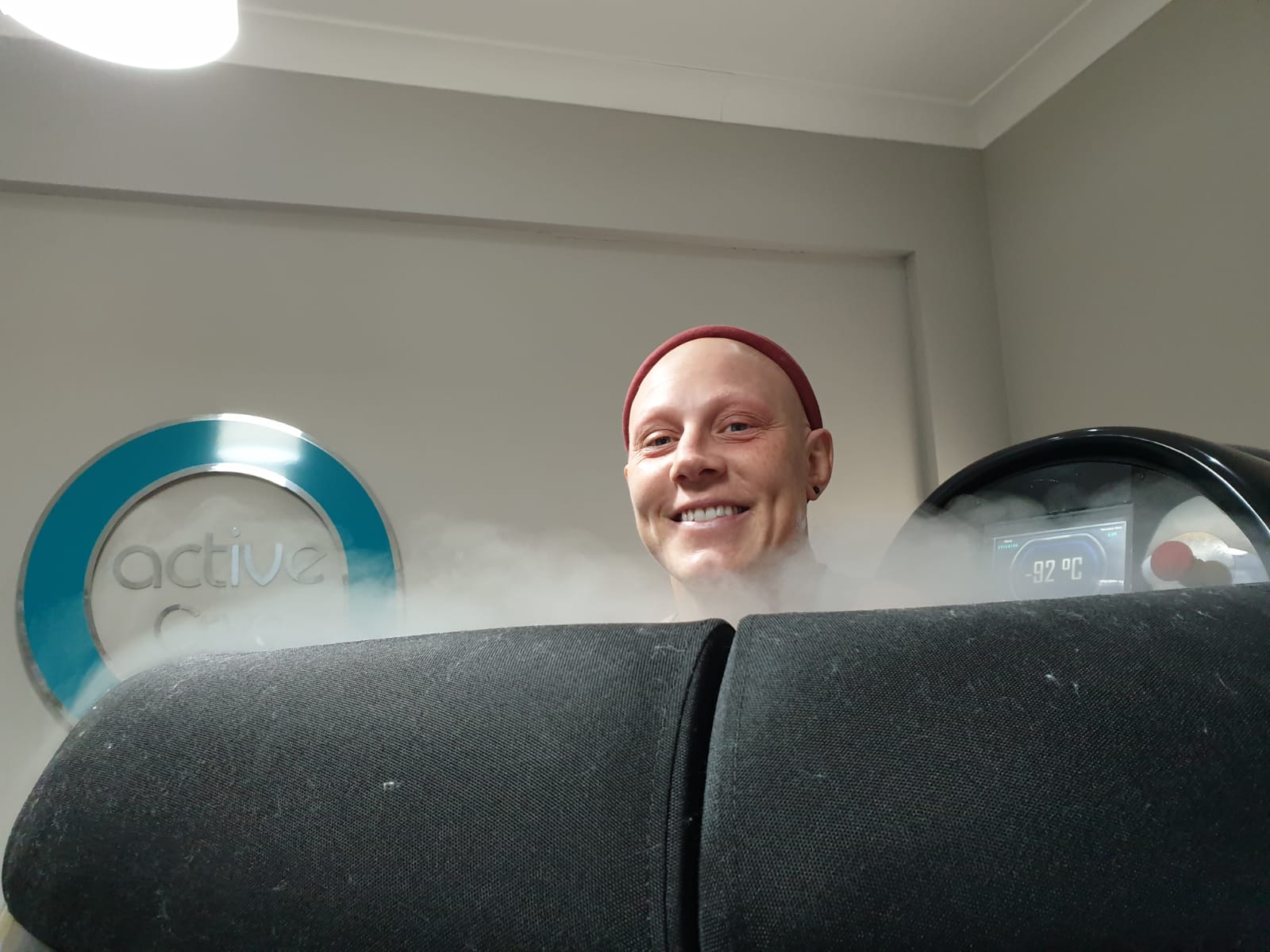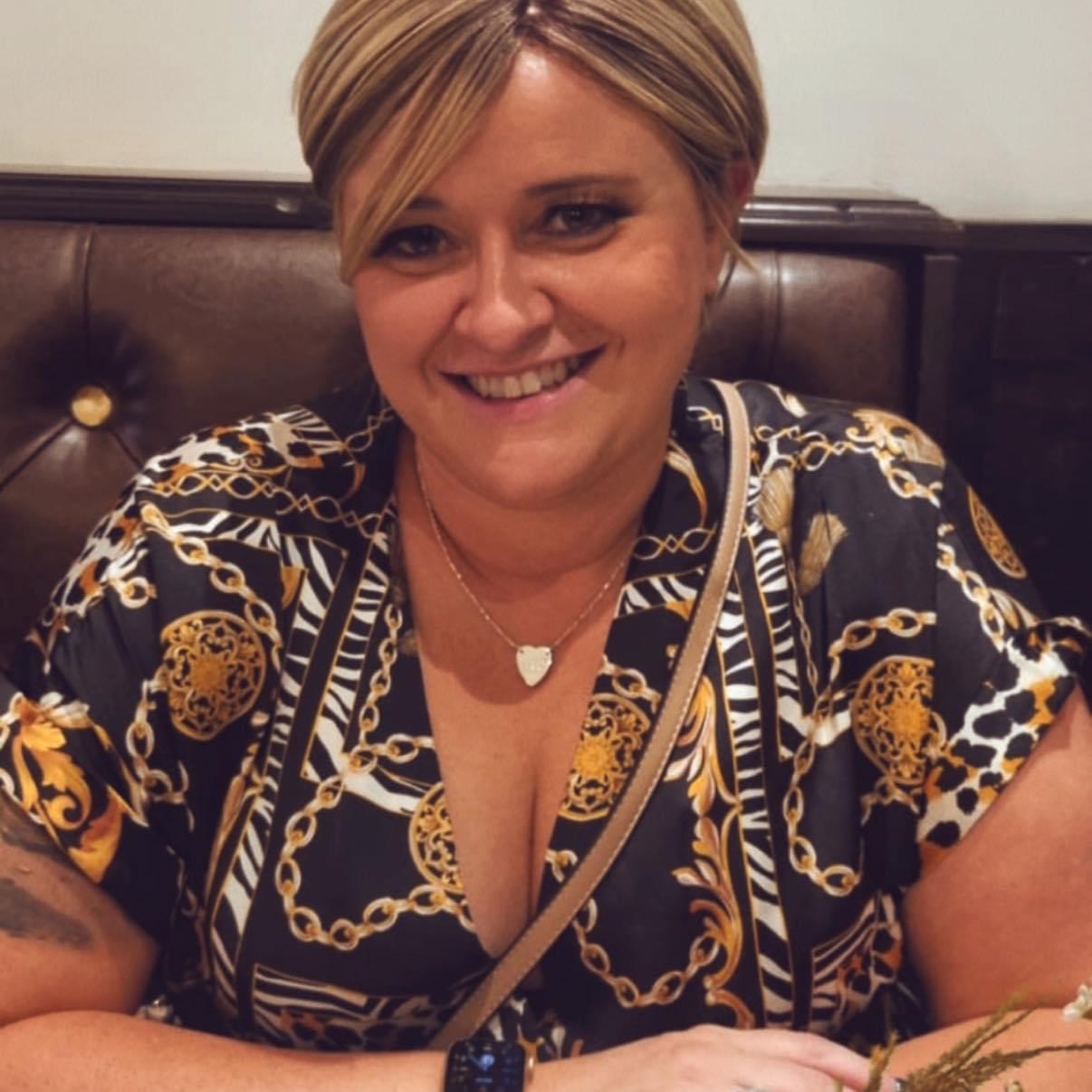“It wasn’t just hair, it was my identity” - three women reveal the real-world impact of alopecia
Three women reveal how alopecia affects them as the ripple effect of the Oscars continues


It was an interruption that would come to define this year’s academy awards. Will Smith slapped presenter Chris Rock after he made a joke at the expense of the actor’s wife, Jada Pinkett Smith, who has spoken openly about being diagnosed with alopecia.
While charities and activists alike have condemned Smith’s actions, they’ve also said that the incident exemplifies the difficult experiences those living with the condition can have. "The comments I've seen on the matter via socials has made it glaringly obvious that there is still a lot to learn about alopecia and the effects it has on individuals," Gina Atinuke Knight, who uses her platform to raise awareness of the condition, wrote on Instagram. "This has highlighted the way alopecia is seen in society. It's never seen as a big deal because 'its just hair' but its 100% a life altering condition that can cause long term mental health issues."
A post shared by Gina Atinuke Knight (@ginaatinukeknight)
A photo posted by on
Alopecia comes in many forms but it’s a disease that develops when the body starts to attack its hair follicles, which can cause someone to lose hair anywhere on their body. The causes of hair loss and hair thinning in women aren’t fully understood, but there’s no doubt that alopecia affects more people than we might think, and in ways those without the condition couldn’t imagine.
Here, three women speak to woman&home about their own experiences with alopecia and hair loss.
"I lost a massive part of my personality"
Heather Fisher, 37, Solihull

Heather began regular cryotherapy and hyperbaric oxygen chamber treatments at Active Clinics in Edgbaston. Cryotherapy is an extreme cold treatment which is based on temperatures between -120°C and -160°C. This triggers a physiological response in the body and is known to be used by many sports stars to boost their recovery.
Sitting in her car with the windows down after a heavy training session, England rugby star Heather Fisher ran her hands through her hair.
“I remember having loads of hair in my right hand,” she says. “And when I drove off, I could feel the hair falling out of the window. But I never sat there and thought I was going to lose my hair. I never thought I’ve got alopecia and I never thought I’m going bald.”
While Heather knew it shouldn’t have happened, it wasn’t an immediate source of stress. Over the next six months, as her hair continued to fall out, however, the stress began.
Sign up to our free daily email for the latest royal and entertainment news, interesting opinion, expert advice on styling and beauty trends, and no-nonsense guides to the health and wellness questions you want answered.
“It got to the stage where every day, the first place I would look would be the pillow—and that was a massive stress.” she says. “Waking up in the morning knowing how much hair I had lost that day or that morning brought on an anxiety in itself.”
“Over time, I lost it to the point where I hardly had any hair. I had four comb-overs to try and hide the bald patches, (and) I was dyeing my hair,” she says.
At the time, Heather was on the pathway for the England Seniors, training well and working her way towards playing in the 2010 World Cup in London later that year. While she had bigger things on her mind, there was no denying that the condition was taking a toll.
A post shared by Heather Fisher (@heatherfish29)
A photo posted by on
“Hair loss is something you can’t hide, it’s visible to everyone around you. It started to affect my confidence. I didn’t know how to handle conversations, I didn’t know how to handle people looking at me. I felt ashamed to be going through what I was going through. The only safe place really was the England bubble, they were the people who knew it was coming out.”
But as supportive as Heather's teammates were, they and others around her struggled to truly understand what she was going through day-to-day. “I get a lot of people saying that they’d love to shave their hair off, but they know that it will grow back. What would you do if you knew it was never going to grow back?”
“I can honestly say that when I lost my hair that year, I lost a massive part of my personality. I didn’t go out for months, for years. My relationship broke down, my confidence broke down. I didn’t feel attractive, I didn’t want to meet people.”
While new research from the Ben-Gurion University of the Negev suggests that women are only marginally more likely to develop the condition than men, the societal expectations placed on women to look a certain way have made the condition even harder for those who have it.
“You feel really naked without hair, you always feel underdressed and like you’ve gone out half done-up. For me, my hair was part of my character and part of who I am and I used to love getting my hair done and feeling nice. And all of a sudden that changes. I don’t wear mascara because I haven’t got any eyelashes, I wear glasses because my eyes get sore and dry. I feel quite exposed as a female with no hair and quite muscular shoulders.”
On top of this, she says, “My gender is questioned every day, like everywhere I go. Losing your hair has all these consequences attached to it. I think it’s one thing overcoming muscularity as a woman in sport but then it’s another thing losing your hair, it’s really hard.”
It’s the representation of people like her, Heather says, that needs to change. “You would never see a bald, muscular female on the front of a magazine. On TV, you never see a bald female. We don’t see these people talking about it enough. How are we supposed to embrace being bald if we can’t see anyone who is bald? Me walking around being bald is almost saying if I can do it, then you can do it too.”
"You can come out the other side of this"
Natasha Dhalla, 53, Norfolk

Natasha first spoke to a doctor about the condition of her hair in her late 20s, dropping it into the conversation as she was already at the GP for an appointment. But blood tests came back negative for anything that would suggest a reason behind her hair falling out, so she left it.
“It was never pursued,” she tells woman&home. “And then I tried all the different diets and vitamins and hair treatments, all of that, which were quite a waste of money in hindsight but I think you’ll try anything when you’re desperate.”
It wasn’t until her 40s, back at the doctors for a routine smear test that a nurse took a look at her scalp again. “She was quite shocked. I was referred to a dermatologist and had a scalp biopsy. They found three types of hair loss - telogen effluvium, alopecia areata and androgenic alopecia. But by that time, I was having integrated hair systems and wigs. It all kind of came a bit late for me.”
Not knowing anyone else in her life with the condition, Natasha found support in Alopecia UK’s online Facebook group. Here she met people going through the same experiences as she was - men and women alike, all impacted by hair loss. However, much like Heather, Natasha found that elsewhere in her life, people couldn’t understand.
“People tell me to eat watermelon because they’ve heard that will help, they’ll ask whether I’ve tried this shampoo or that shampoo, if I've tried a certain vitamin. I think there’s a lot of misunderstanding around the condition and how it affects your life.”
“You know, I’d get up in the morning and dry heave because I didn’t want to go out of the house, looking in the mirror at myself. I was such a confident, outgoing person. I’d have people around saying it’s just hair but it wasn’t just hair, it was my identity. I used to have loads of curly hair that people would comment on. You kind of feel like you’re losing your femininity as well. I never accepted that it’s just hair because it’s not. It changed how my face looked, it made me dress differently. All sorts of things, constantly doing things to try and hide it.”
The impact of alopecia on those who have the condition is undoubtedly life-changing and in Natasha’s experience, it wasn’t just the big events - it was every day too. “I’d go to work in the office, keep my head down. If I was in a meeting, I wouldn’t want anyone to sit behind me because they might see so I always sat at the back so there was a wall behind me.”
“With friends, I just made excuses constantly about not being able to go out. Saying sorry but I just can’t deal with it, worrying about what I was going to look like and taking five hours doing something with my hair. It was just easier not to go.”
While some people with alopecia choose to not wear a wig, Natasha found that hers helped avoid many of the uncomfortable moments. “Now I wear hair, I don’t do that,” she says. “People say to me that they didn’t know I wore hair and I do tell people that I have help with it. For people that are just starting out with this, you can come out the other side with it. Whether you choose to wear hair or not, you can come out the other side of this.”
"There is still a stigma attached to it"
Claire Pringle, 41, East Ayrshire

While alopecia can manifest at any point in a person’s life, the same research from the Ben-Gurion University of the Negev suggests that it’s most likely to present itself between the ages of 25 to 29. Claire Pringle, living in Scotland, was the one in 3500 diagnosed much younger than this.
“I was diagnosed aged seven when several bald patches started to appear over my head. At the time, I was too young to really understand, however coming into my teens it had a bigger impact,” she says. “The condition can be debilitating if you lose your hair suddenly.”
But while her condition was recognized by a doctor, giving a name to what was happening, there wasn’t much Claire could do about it as a teenager with limited resources available. “Back then, there were no wigs for kids and I distinctly remember wearing a pink Snoopy hat for years. Then when I did get access to a wig, it was more suited to an elderly lady.”
“Strangely though,” she says, “I would say that developing alopecia so young has given me a much better ability to cope. I have been hairless for 34 years now, I’m not sure I’d know what to do if my hair grew back.”
While Claire’s comfortable with her condition, she also feels that it’s the perceptions of other people that makes it harder to deal with sometimes. “There is still a stigma or an embarrassment attached to it. I am always apprehensive about telling anyone about it and I would never go out without my wig. But in my experience, the majority of people tell me I’m actually more beautiful with a bald head.”
The ultimate test came in Claire’s early 20s however, years after being diagnosed, as she trained to become part of an airline cabin crew. “With such emphasis on appearance, it took a lot of confidence to relax in the job.”
She says, “It was the best thing I ever did, to be honest. It gave me the confidence to embrace what I looked like and it proved that I could do a job I loved and not worry about my appearance - it also proved that wigs are very good these days!”
For support with alopecia and hair loss, visit Alopecia UK or the National Alopecia Areata Foundation if you’re living in the US.

Grace Walsh is woman&home's Health Channel Editor, working across the areas of fitness, nutrition, sleep, mental health, relationships, and sex. She is also a qualified fitness instructor. In 2025, she will be taking on her third marathon in Brighton, completing her first ultra marathon, and qualifying as a certified personal trainer and nutrition coach.
A digital journalist with over seven years experience as a writer and editor for UK publications, Grace has covered (almost) everything in the world of health and wellbeing with bylines in Cosmopolitan, Red, The i Paper, GoodtoKnow, and more.